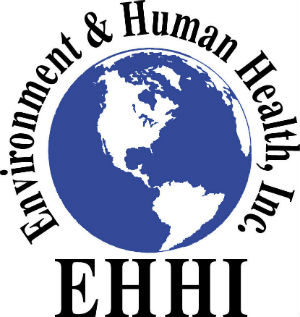The Plastics Problem
Plastics and Microplastics:
a Threat to the Environment and Health


Bottle Bill Redemption Laws
Connecticut now has a comprehensive Bottle Redemption Law. As of January, 2023, the bottles in Connecticut that are now redeemable for 5 cents each include: water, soda, beer, juice, iced tea,and sport drink bottles. This law keeps those bottles, which most are plastic, out of the waste stream. Only 10 states have Bottle Bill Redemption Laws, leaving 40 states without them. This means that millions of bottles are still entering the country’s waste stream. It will be critically important to get the remaining 40 states to enact Bottle Bills.
As an example of a good law that can be replicated, we include Connecticut’s updated Bottle Bill. CT’s first Bottle Bill was enacted in the 1970s and only included water, soda, and beer bottles. With the advent of juice, iced tea and sport drinks becoming so popular, it was important to update the law to include them.
The Connecticut Bottle Bill 2022Ban on BPA Legislation: Public Act No. 09-103: An Act Concerning Banning Bisphenol-A in Children's Products and Food Products
OpEd: Expand Connecticut's Bottle Bill, Reduce Plastic Waste
A Summary of the 4 Plastic Reduction Ordinances in Four Connecticut Towns

Plastics Report
Plastics of Particular Concern: BPA and DEHP
Nearly 100 billion pounds of plastic are produced in the United States each year. Plastics are now heavily used in food and beverage packaging, building products, electrical wiring, vehicles, furniture, toys, and medical devices. Plastics now comprise nearly 70% of the synthetic chemical industry in the nation. EHHI's report focuses on two plastic ingredients — bisphenol A (BPA) and Di(2-ethylhexyl) phthalate (DEHP).
Summary
Order Pursuant to General Statutes § 22a-6, Effective August 2, 2022
en Español: Recomendaciones
Press Release

Plastics: 12 Steps to Reduce Use
Environment and Human Health, Inc.'s brochure outlines 12 ways to address the plastic epidemic.
Download full text of brochure
News and Information about Plastics
Are Plastic Takeout Containers Harming Your Heart Health?
A recent study published in “Ecotoxicology and Environmental Safety” suggests that plastics commonly used in takeout containers may transfer potentially damaging substances into food.Columbia study warns bottled water contains nanoplastics
The bottled water industry has pushed back against recent findings from Columbia University about nanoplastics in bottled water. Researchers said these products contain hundreds of thousands of potentially dangerous plastic particles small enough to get into human cells.California Lawsuit Targets Exxon Mobil Corp.
“For decades, Exxon Mobil has been deceiving the public to convince us that plastic recycling could solve the plastic waste and pollution crisis when they clearly knew it wasn’t possible,” said California Atty. Gen. Rob Bonta.Los Angeles County Sues Coke, Pepsi Over Plastics Concerns
Los Angeles County sued PepsiCo and Coca-Cola for their alleged role in negative impacts on the environment and public health. The lawsuit says PepsiCo and Coca-Cola have also made false promises about increasing the use of recycled plastic.Microplastics linked to heart attack, stroke and death
Scientific American reports that a study of more than 200 people undergoing surgery found that nearly 60% had microplastics or even smaller nanoplastics in a main artery. Those who did were 4.5 times more likely to experience a heart attack, a stroke or death in the approximately 34 months after the surgery than were those whose arteries were plastic-free.Microplastics found in all human placentas and arteries tested
Environmental Health News reports a new study showing microplastics, especially polyethylene, in every developing fetus tested. A second study revealed microplastics in all the human arteries tested and suggested the particles may be linked to clogging of the blood vessels. Microplastics have also recently been discovered in blood and breast milk.Plastics: Packaging Is a Big Problem
The Yale Business School says because packaging has such a short use phase for us as consumers, we throw away a lot of it. And 46% of the plastic that’s produced is packaging, so fixing our broken system is important.Webinar: CLARITY-BPA: Achieving clarity on low dose effects of bisphenol A
Bioplastics: sustainable solution or distraction from the plastic waste crisis?
Bisphenol A — Toxic Plastics Chemical in Canned Food
Study shows PFAS from fluorinated HDPE containers can contaminate food
University of Notre Dame researchers found evidence of per- and polyfluoroalkyl substances (PFAS) migrating from fluorinated high-density polyethylene (HDPE) plastic containers into food.
Bisphenol A — Toxic Plastics Chemical in Canned Food
Study shows PFAS from fluorinated HDPE containers can contaminate food
CT Attorney General Calls for Robust Stategy to Fight Plastic Pollution
New York's ambitious EPR bill faces lobbying frenzy
New York’s new Extended Producer Responsibility (EPR) bill is expected to face fierce industry resistance. The bill would force major companies to pay for all packaging waste management in New York state.California passes strongest EPR and recycling legislation in the U.S.
In June, Gov. Gavin Newsom of California signed Senate Bill 54, which starts the process for the state to create the largest extended producer responsibility (EPR) program and strictest plastic reduction targets in the country. BPA Still a Favorite Among Canned Good Brands
BPA Alternative Disrupts Normal Brain-Cell Growth, Is Tied to Hyperactivity, Study Says
The Estrogenic Endocrine-Disrupting Chemical Bisphenol A (BPA) and Obesity
Pervasive Threat: The Danger of in utero BPA Exposure
Phthalates Potentially Alter Levels of a Pregnancy Hormone that Influences Sex Development
Do Our Bodies Safely Break Down BPA? Fat Chance, Study Suggests
Hyperactivity in Children Linked to Plastic Additive, BPA
BPA Still a Favorite Among Canned Good Brands
BPA Alternative Disrupts Normal Brain-Cell Growth, Is Tied to Hyperactivity, Study Says
